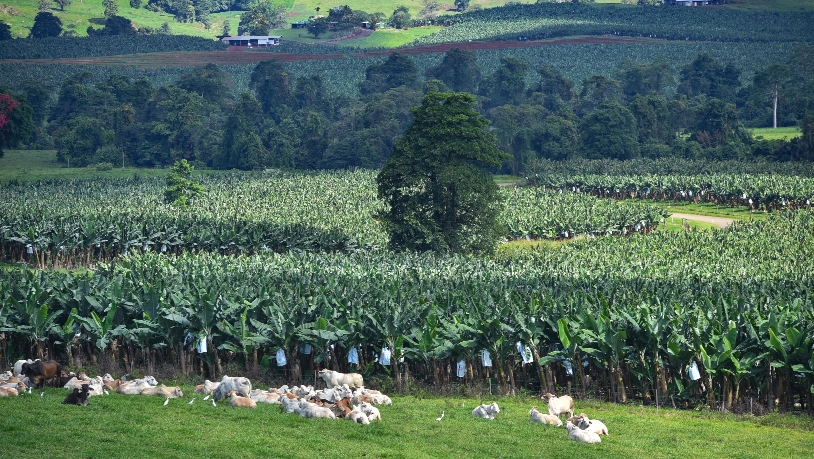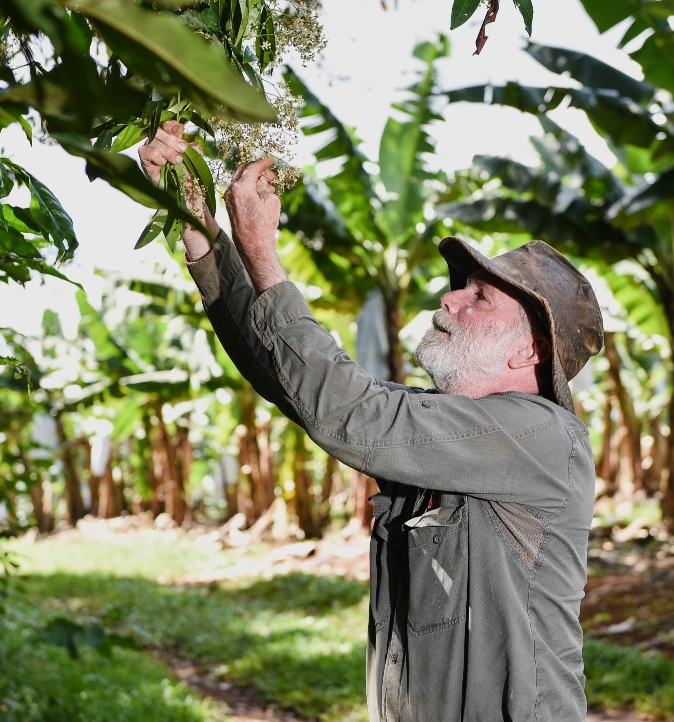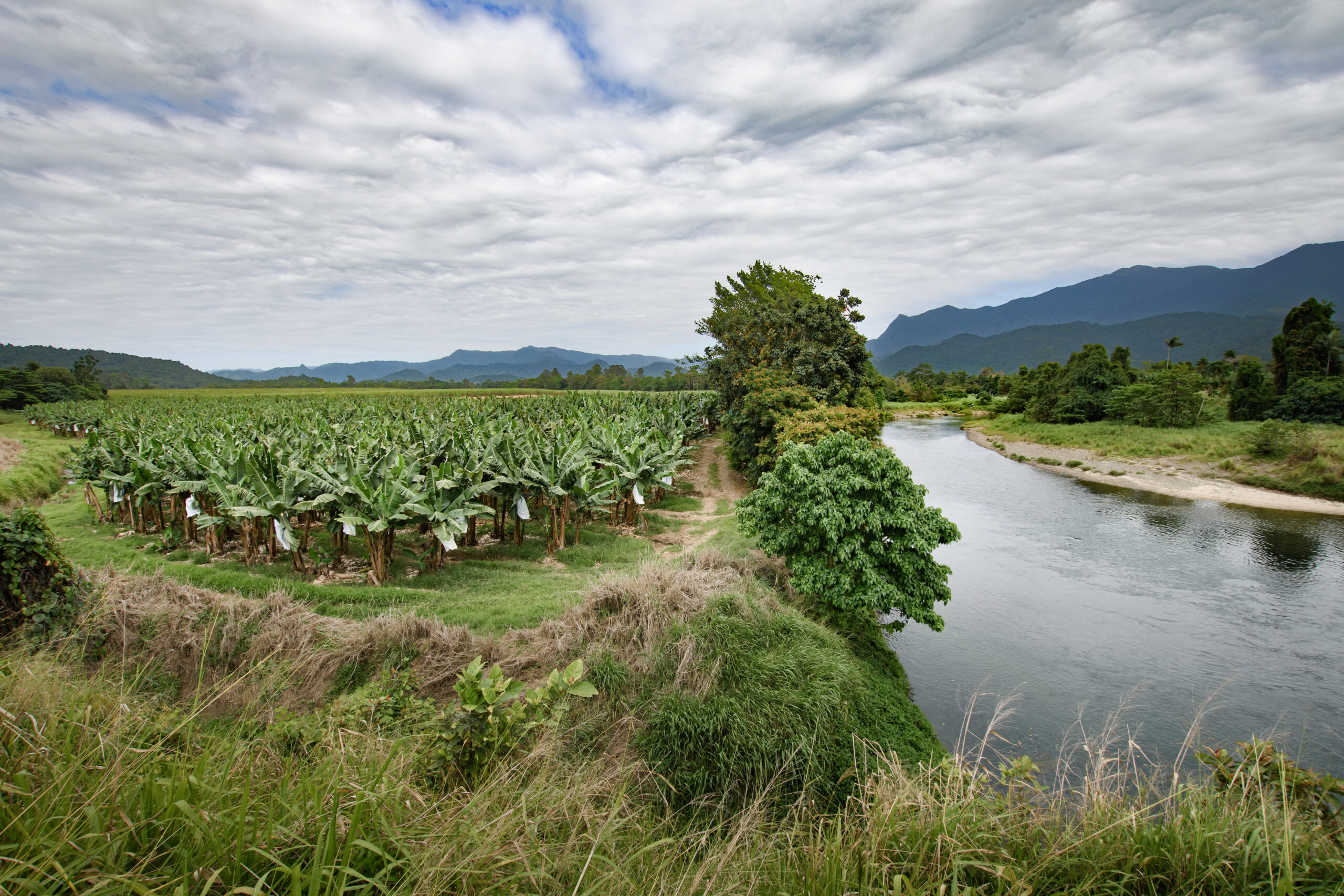
Best Management Practice (BMP)
BY GROWERS, FOR GROWERS: Since 2013, the Banana BMP has been helping growers to self-assess their own environmental practice against the wider industry.
Key ContactS
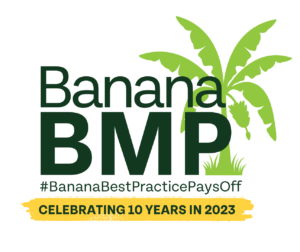
LATEST BMP NEWS
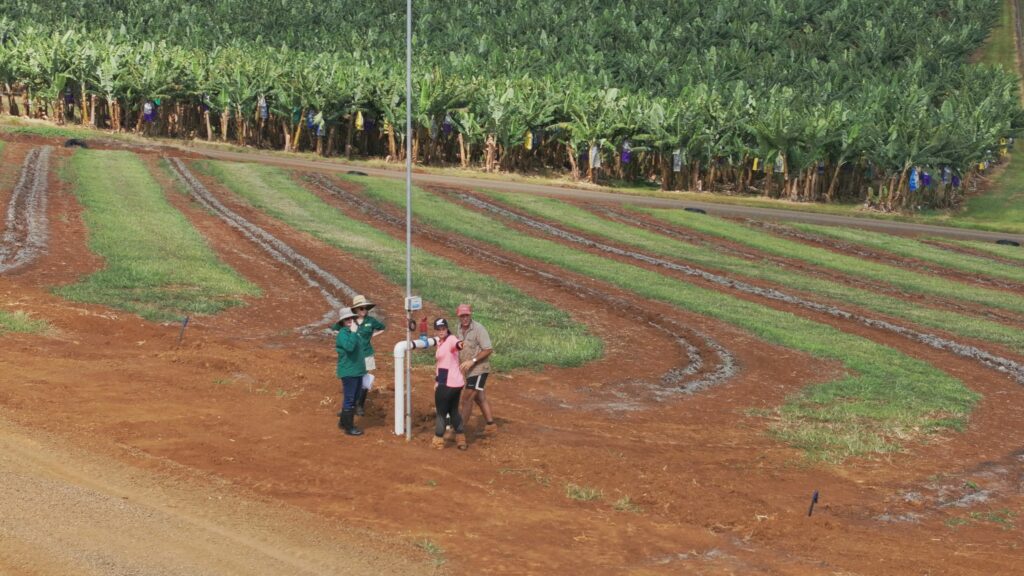
APPLICATIONS OPEN: BANANA BMP’S BEST PRACTICE FUND
Applications are now open for BMP’s Best Practice Fund Grants.
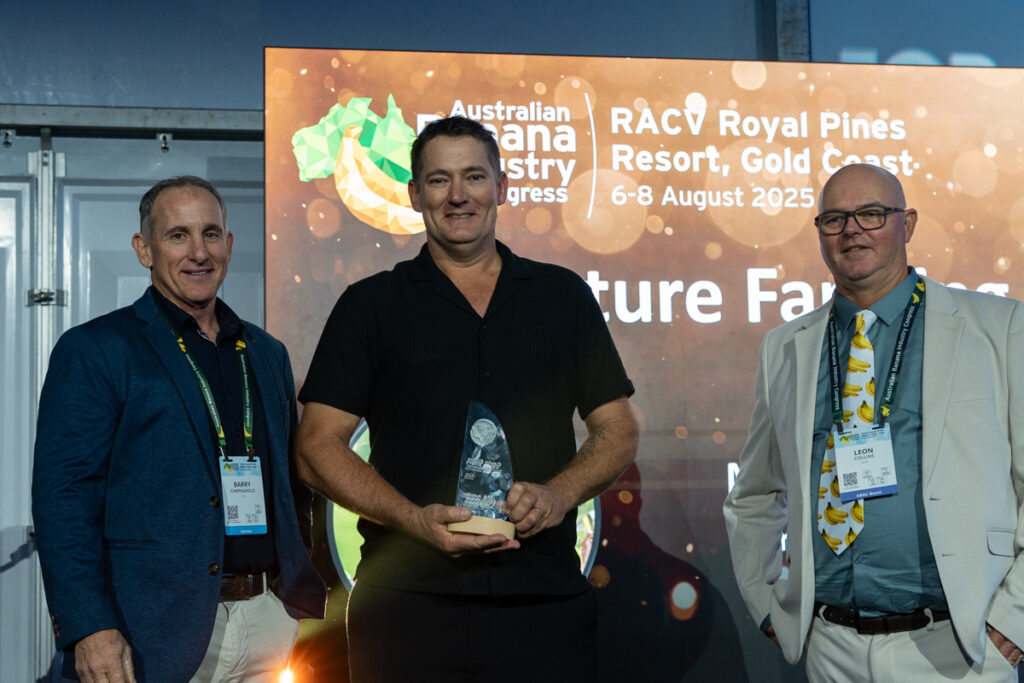
Banana industry celebrates best of bunch at Congress
Best and brightest awarded at Banana Industry’s premier event.
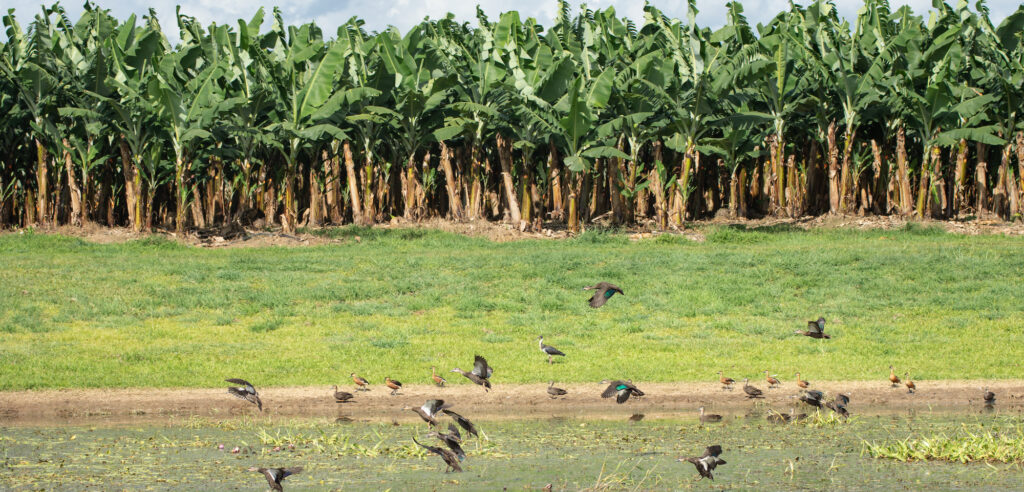
Nominations Open: Future Farming Award 2025
Nominations are now open for the Future Farming Award.
BANANA BEST MANAGEMENT PRACTICE
The Banana BMP is an annual checklist that growers can use to identify farm management practices they’d like to implement in order to continuously improve to reach/exceed BMP.
The BMP is available as a single downloadable document or an an interactive online questionnaire that banana growers can do by themselves or with the support of an ABGC Extension Officer.
BANANA BMP TEAM
AMELIA FOSTER
BMP COORDINATOR
Stephanie Ruiz
Extension officer
Eleanor sibree
Graduate Extension Officer
Nisha Rani
Extension Officer
LAURA MACGILLYCUDDY
Extension officer

FUTURE FARMING AWARD
The Future Farming Award is presented at the Australian Banana Industry Congress and recognises Outstanding Achievement in Banana Best Management Practice.
The 2025 recipient was Gavin Eilers of Tropicana Bananas.
BETTER BUNCH APP
The Banana industry’s ‘BetterBunch’ app is a time saving device to assist growers to record farm practices. This app has been designed to include the requirements under the new Water Quality regulations.
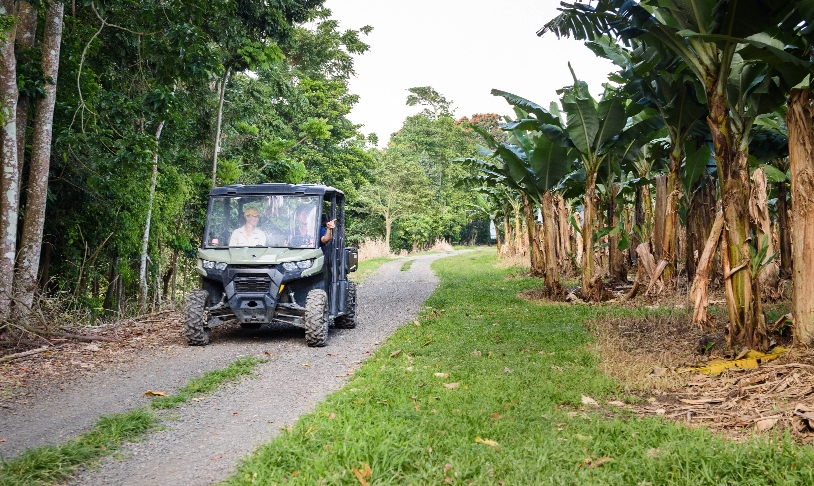
REEF REGULATIONS
In December 2019, the Queensland Government introduced regulations for the use of nitrogen and phosphorous on banana farms in Reef catchments. This also includes implementing measures that minimise sediment loss from farms.
Video Resources
Banana BMP

1:43

7:10

4:15

6:13

1:11
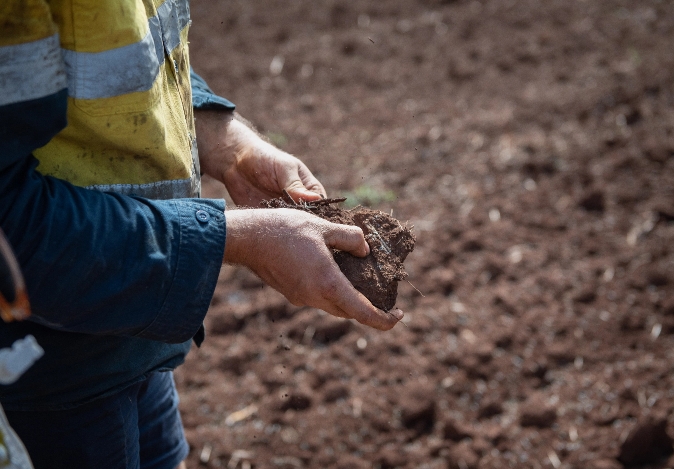
MANAGING YOUR SOIL
Your soil is a valuable resource. Poor farm layout, high traffic areas and lack of ground cover can lead to soil losses. The high rainfall in the Wet Tropics means that all soil loss cannot be avoided but some measures can be taken to minimise soil loss or capture it to prevent sediments entering waterways and ultimately the Great Barrier Reef lagoon.
INTEGRATED PEST MANAGEMENT
Adopting a range of different strategies to manage pest populations is essential. This helps minimise the potential for chemical resistance and ensure that beneficial insects/organisms are not adversely impacted by control mechanisms. Further information can be found below
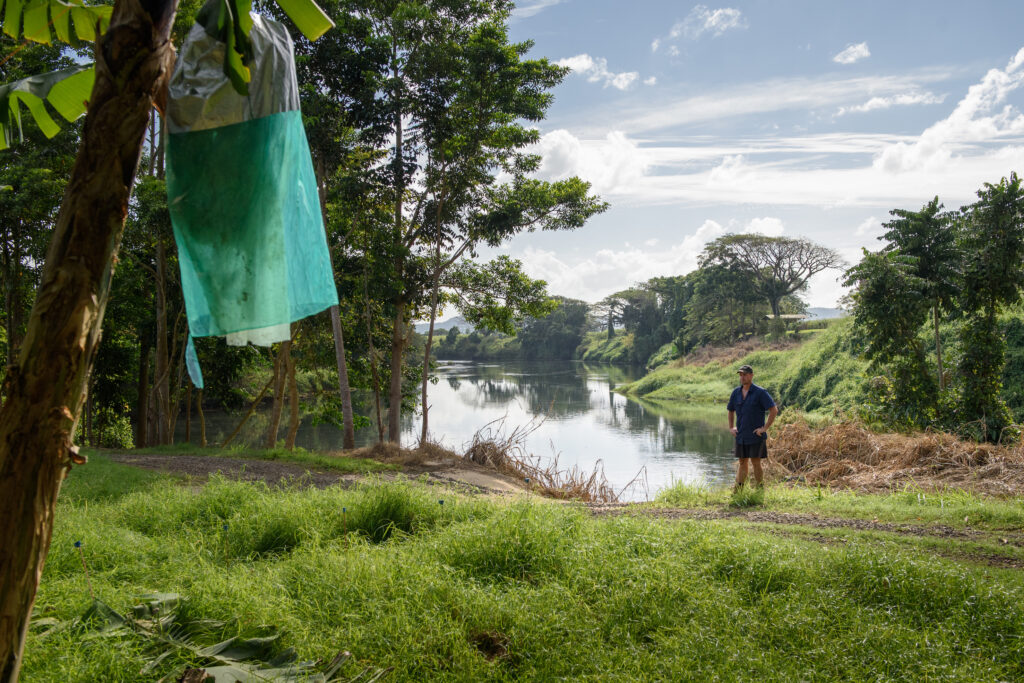
MANAGING YOUR NUTRIENTS
In December 2019, the Queensland Government introduced regulations to restrict the amount of nitrogen and phosphorous that can be applied on banana farms in Reef catchments. To find out about these regulations and other resources (factsheets/videos)
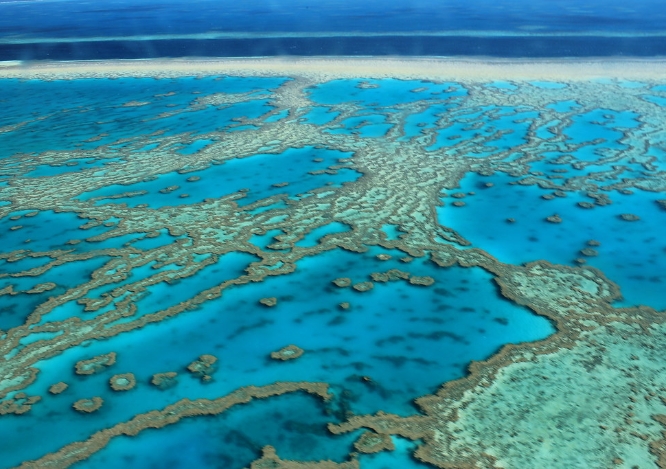
WATER QUALITY
Around 90% of banana farming occurs in catchments adjacent to the World Heritage listed Great Barrier Reef Marine Park. The Reef is under increasing threat from a range of pressures that include the impact of land based run-off associated with agricultural activities. Find out more here

Environmental BMP
Since 2013, the Banana BMP has been helping growers to self-assess their own environmental practice against the wider industry. The Banana BMP was written by growers, for growers and can help demonstrate our industry’s ongoing improvements in the areas of soil health and nutrients, sediment control and pest management.
The BMP is available as a single downloadable document or an an interactive online questionnaire that banana growers can do by themselves or with the support of an ABGC Extension Officer.
Biosecurity BMP
The Queensland Department of Agriculture and Fisheries has developed an On-Farm biosecurity manual (Biosecurity Best Management Practice) which includes a range of checklists, pictures and information.
The Banana best management practices on-farm biosecurity manual was designed to assist growers to implement effective on-farm biosecurity practices. It was produced as part of the Hort Innovation Banana Fund project Fusarium wilt Tropical Race 4 – biosecurity and sustainable solutions (BA14013).
